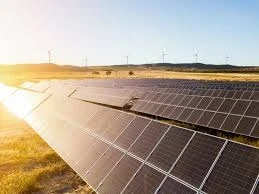hybrid inverter
Understanding Hybrid Inverters The Future of Energy Management
In recent years, the concept of hybrid inverters has gained significant traction in the renewable energy sector. These innovative devices combine the functions of traditional solar inverters and battery storage systems, providing a more efficient way to manage energy generated from solar panels. As the world increasingly pivots towards sustainable energy solutions, understanding hybrid inverters and their implications for energy management becomes crucial.
What is a Hybrid Inverter?
A hybrid inverter is a device that integrates multiple energy sources, primarily solar and battery storage, allowing users to utilize renewable energy based on their needs and circumstances. Unlike traditional inverters that only convert direct current (DC) from solar panels into alternating current (AC) for home use, hybrid inverters can also store excess energy for later use. This capability is particularly beneficial in regions where power outages are frequent or where the energy grid is unreliable.
How Do Hybrid Inverters Work?
Hybrid inverters operate by controlling the flow of electricity generated by solar panels while managing battery storage. When sunlight hits the solar panels, they generate DC electricity. The hybrid inverter converts this DC electricity into AC power for household use. If there is excess energy after meeting immediate consumption needs, the inverter can divert this surplus to charge connected batteries. When energy demand exceeds solar output, the inverter draws power from the battery, ensuring a continual energy supply.
Furthermore, many hybrid inverters come equipped with smart technology, allowing users to monitor and manage their energy consumption through mobile apps
. This feature enables homeowners to make informed decisions about their energy use, optimize battery charging and discharging, and maximize their reliance on solar power.The Benefits of Hybrid Inverters
1. Energy Independence With a hybrid inverter, homeowners can generate and store their own electricity, significantly reducing reliance on the grid. This aspect is particularly appealing in remote areas or places with unreliable electricity supply.
hybrid inverter

2. Cost Savings By utilizing solar energy during peak sunlight hours and storing excess energy for later use, homeowners can lower their electricity bills. Moreover, many regions offer incentives for solar installation, further enhancing financial savings.
3. Environmental Impact Hybrid inverters contribute to a decrease in carbon emissions by facilitating the use of renewable energy sources. This shift towards cleaner energy aligns with global efforts to combat climate change.
4. Scalability Hybrid systems can be easily scaled to accommodate increased energy needs. Homeowners can start with a basic setup and gradually expand their system by adding more solar panels or battery capacity as required.
5. Resilience In times of grid failures or power outages, hybrid inverters provide a reliable power source. Homeowners can switch to battery power seamlessly, ensuring that critical systems remain operational.
Challenges and Considerations
Despite their numerous advantages, hybrid inverters are not without challenges. The initial cost of installation can be significant, and homeowners must evaluate the long-term financial benefits against these upfront expenses. Additionally, battery technology is continually evolving, and selecting the right battery type and capacity is crucial for maximizing system efficiency.
Furthermore, proper installation and maintenance are vital to ensure the longevity and performance of the hybrid inverter system. Engaging with qualified professionals for installation and regular system checks can mitigate potential issues.
Conclusion
Hybrid inverters represent a pivotal advancement in energy management technology, merging solar power generation with energy storage capabilities. As the demand for sustainable energy solutions continues to rise, these devices will play a critical role in shaping the future of energy consumption. By understanding their functionality and benefits, homeowners can make informed decisions that enhance their energy independence, reduce costs, and contribute positively to the environment. As technology progresses, the role of hybrid inverters will likely expand, making renewable energy more accessible and practical for widespread use.
-
String Solar Inverter: The High-Efficiency Solution for Smart Solar EnergyNewsJul.14,2025
-
Revolutionizing Rooftop Energy with the Power of the Micro Solar InverterNewsJul.14,2025
-
Power Independence with Smart Off Grid Solar Inverter SolutionsNewsJul.14,2025
-
On Grid Solar Inverter: Powering the Future with Smart Grid IntegrationNewsJul.14,2025
-
Monocrystalline Solar Panels: High-Efficiency Power for the Future of Clean EnergyNewsJul.14,2025
-
Bifacial Solar Panel: A Smarter Investment for Next-Generation Energy SystemsNewsJul.14,2025







